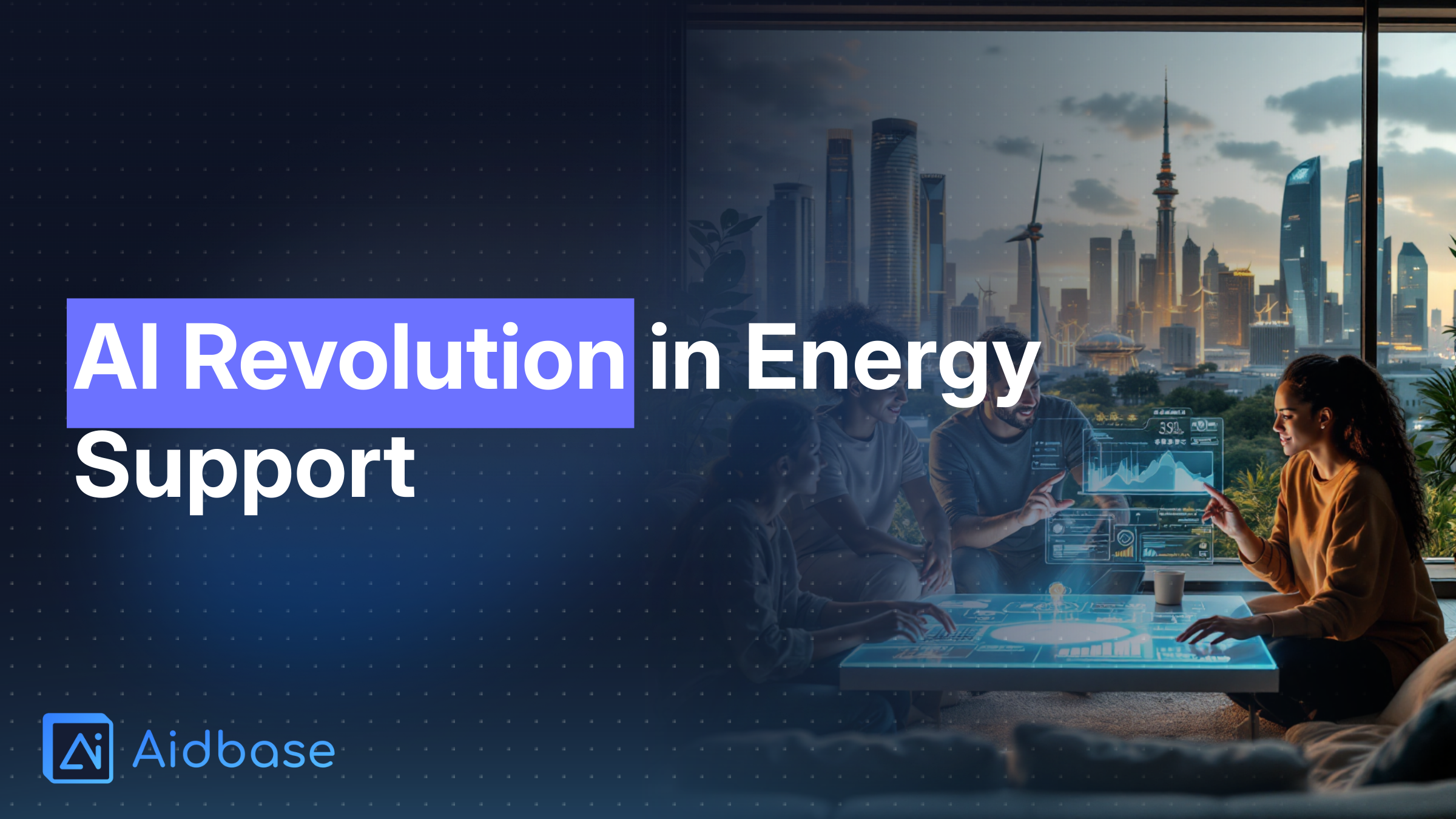Artificial intelligence is revolutionizing the energy sector by streamlinin...

In today's rapidly evolving landscape, artificial intelligence is emerging as a game changer in the energy sector. AI not only streamlines operations but also fundamentally transforms customer support by enhancing engagement, reducing operational costs, and improving overall service quality.
The energy sector has traditionally relied on robust infrastructure and complex logistical systems to deliver power efficiently. However, the integration of AI is reshaping this industry by introducing innovative solutions that optimize energy production, distribution, and customer care. By leveraging machine learning, data analytics, and automation, companies can now anticipate issues before they arise and provide proactive customer support. This transformation is paving the way for smarter energy grids and more reliable, customer-focused services, illustrating that the future of energy is intertwined with advanced technology.
Customer engagement within energy services goes beyond routine billing inquiries or outage reports—it now encompasses a deeper, data-driven interaction that values personalized experiences and real-time problem resolution. AI tools analyze vast amounts of data to determine patterns in energy consumption and predict customer behavior, enabling energy providers to offer services that align with individual needs. This proactive approach not only fosters consumer trust but also helps companies optimize their offerings, paving the way for:
This shift towards dynamic, customer-centric service models is further supported by AI platforms like Aidbase, which assist in delivering robust support solutions.
Predictive maintenance, powered by AI, is revolutionizing how energy companies interact with their assets and, by extension, their customers. By employing AI-driven sensors and robust analytics, companies can detect structural anomalies and equipment malfunctions before they culminate in major failures. For instance, Gecko Robotics is at the forefront of this innovation—they have introduced autonomous robots that inspect and maintain critical energy assets, such as power plants. This proactive maintenance:
As highlighted by axios.com, this technology is not only cost-effective but also crucial in the context of an increasing electricity demand, projected to grow by 16% over the next five years. With predictive maintenance, customer interactions shift from crisis management to a more supportive, anticipatory dialogue that builds long-term trust.
A significant leap forward in customer engagement comes from offering personalized insights on energy consumption. AI technologies are now capable of monitoring and analyzing specific data points such as humidity, ventilation rates, and other environmental factors. For example, the ARIA platform by BrainBox AI automates the optimization of HVAC systems in commercial buildings, leading to more efficient energy use and lower costs—a benefit that translates directly to better customer satisfaction. This system not only:
Such personalized insights help customers understand their consumption patterns, paving the way for informed energy use that benefits both the environment and the bottom line. More details can be found in this Time article.
Handling customer inquiries promptly and accurately is at the heart of excellent customer support. AI-powered customer support agents are now at the frontline of this transformation, streamlining the query resolution process across the energy sector. An excellent example of this innovation is seen with Enercom Group from Italy. By implementing AI agents, Enercom has automated tasks such as managing routine inquiries, processing new sign-ups, and guiding customers through troubleshooting steps. The benefits of this integration include:
For those interested in exploring advanced support solutions, platforms like Aidbase provide comprehensive AI support tools that further enhance these service capabilities, as highlighted by indigo.ai.
Real-world applications highlight the tangible benefits of integrating AI into customer support. Several case studies exemplify the transformative impact of AI technologies on the energy sector:
These examples underscore how AI not only streamlines operations but simultaneously elevates customer engagement by transforming traditional approaches to maintenance, diagnostics, and query resolution.
While the benefits of AI in customer support within the energy sector are numerous, there are important challenges and considerations to address:
Addressing these issues is vital for a smooth transition to AI-powered customer support systems. Future solutions may include better training programs, enhanced cybersecurity measures, and more versatile AI platforms that can operate across multiple legacy environments.
Looking ahead, the intersection of AI and energy customer support promises even more innovative solutions. Future trends include:
These trends will not only redefine customer support in the energy sector but will also contribute to more sustainable and efficient energy management practices on a global scale.
Artificial intelligence is revolutionizing customer support in the energy sector by enhancing predictive maintenance, delivering personalized insights, and streamlining query resolution. These innovations are creating a more resilient and customer-focused industry that benefits both energy providers and their consumers. While challenges such as data security, integration complexities, and initial costs remain, the potential rewards far outweigh the obstacles.
The future is bright for those ready to embrace these transformative technologies. By investing in AI tools and platforms—whether through in-house development or innovative solutions like Aidbase—energy providers can build a smarter, more efficient, and customer-centric future, ensuring that both operational excellence and high-quality customer engagement remain at the forefront of their strategic initiatives.